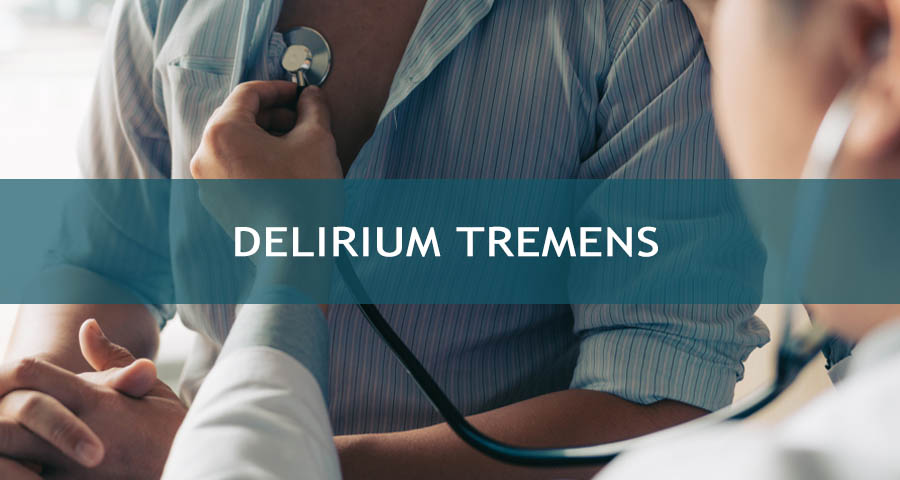Delirium tremens is a cognitive disorder caused by alcohol withdrawal in a chemically dependent person. Its treatment must be immediate and requires hospitalization to avoid complications.
The delirium t Rémens is a kind of delirium, and to understand this, we must understand what the delirium. The DSM-IV-TR defines delirium as an acute and reversible neuropsychiatric syndrome (that is, a failure in the brain), caused by a general medical illness or by the consumption of some substance (the latter is the case of delirium tremens, which is associated with alcohol withdrawal or withdrawal from some types of sedatives), which manifests as a set of neuropsychiatric symptoms.
Delirium is a cognitive disorder known for more than 2,000 years. It was considered that it had two forms of manifestation: hypoactive (lethargy) and hyperactive (phrenitis), both manifestations being explained as a brain disease.
Different terms have been used over the years, depending on the medical specialty, to refer to this disorder, including acute confusional disorder, metabolic encephalopathy, and intensive care unit psychosis.
It will not be until the 80s when Lipowsky coined the term ‘delirium,’ which will be collected for the first time in the third edition of the Diagnostic Manual of the American Psychiatric Association (DMS-III), and will replace the less specific term ‘ mental disorder organic ‘used up to its previous edition (DMS-II).
Types of delirium
There are three clinical subtypes of delirium:
- Hyperactive subtype (restlessness, hypervigilance, rapid speech, and irritability)
- Hypoactive subtype (slow movements, slow speech, apathy, and decreased level of consciousness)
- Mixed subtype (presenting the characteristics of the two conditions above)
Concerning delirium tremens, it would be a type of hyperactive delirium caused by abstinence from alcohol in a chemically dependent person (that is, he presents a withdrawal syndrome when he does not consume the substance).
In the case of delirium tremens, therefore, the causes are obvious: the affected person has a known clinical history of alcohol abuse, although the patient does not have to have ingested alcohol during the acute episode. In many cases, it can be associated with withdrawal from alcohol or other sedatives. Also, acute neuroleptic syndrome ( antipsychotic consumption ) can produce these symptoms, although infrequently, but significantly. These patients develop the condition described above when they consume high doses of antipsychotics.
Symptoms and diagnosis of delirium tremens
60% of patients with delirium tremens remember it as an unpleasant, serious, and stressful experience. The symptoms and criteria for the diagnosis of this type of delirium are the following:
- Hallucinations and illusions (auditory and visual). The affected person sees or hears things that do not exist. The type of hallucinations that the patient presents in this mental disorder is usually very distressing, contributing to his agitation. A common form of these hallucinations is the ‘Lilliputian hallucination .’ The patient feels that objects are smaller than their actual size or invaded or attacked by them (for example, miniature dogs that bite him in herds).
- Delusions. The patient thinks things that do not correspond to reality (for example, that news broadcast on radio or television refers to him).
- Alteration of consciousness (for example, decreased attention span) and cognitive function changes ( memory deficiencies, disorientation, language disturbance).
- Tremor.
- Agitation.
- Overactivity.
- Anxiety and terror.
- The disturbances occur in short periods (generally hours or days) and tend to fluctuate during the day.
If the syndrome is not detected, delirium tremens can be fatal, requiring hospital admission. Its main complications include accidental injuries (e.g., falls), or to oneself or others, caused by the confusional state, delusions, or hallucinations. Likewise, symptoms and signs of cardiovascular failure, in addition to seizures, may appear in severe cases, with a significant level of mortality. That is why the treatment of delirium tremens must be carried out immediately and effectively.



